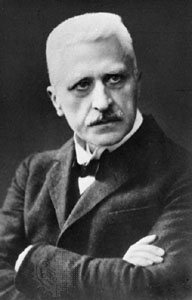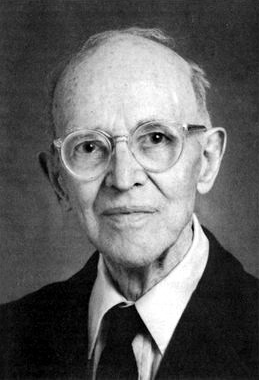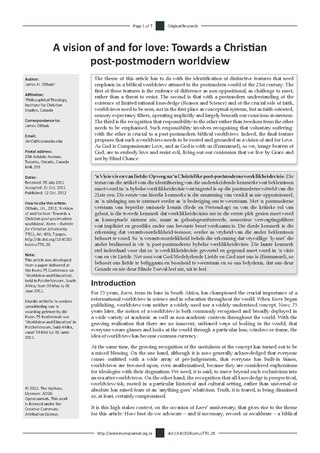
William Payne Alston was an American philosopher. He is widely considered to be one of the most important epistemologists and philosophers of religion of the twentieth century, and is also known for his work in metaphysics and the philosophy of language. His views on foundationalism, internalism and externalism, speech acts, and the epistemic value of mystical experience, among many other topics, have been very influential. He earned his PhD from the University of Chicago and taught at the University of Michigan, Rutgers University, University of Illinois, and Syracuse University.
Dialectic, also known as the dialectical method, refers originally to dialogue between people holding different points of view about a subject but wishing to arrive at the truth through reasoned argumentation. Dialectic resembles debate, but the concept excludes subjective elements such as emotional appeal and rhetoric. It has its origins in ancient philosophy and continued to be developed in the Middle Ages.

Karl Theodor Jaspers was a German-Swiss psychiatrist and philosopher who had a strong influence on modern theology, psychiatry, and philosophy.

Karl Rahner was a German Jesuit priest and theologian who, alongside Henri de Lubac, Hans Urs von Balthasar, and Yves Congar, is considered to be one of the most influential Catholic theologians of the 20th century. He was the brother of Hugo Rahner, also a Jesuit scholar.

Paul Johannes Tillich was a German-American Christian existentialist philosopher, religious socialist, and Lutheran theologian who was one of the most influential theologians of the twentieth century. Tillich taught at German universities before immigrating to the United States in 1933, where he taught at Union Theological Seminary, Harvard University, and the University of Chicago.

Rudolf Otto was an eminent German Lutheran theologian, philosopher, and comparative religionist. He is regarded as one of the most influential scholars of religion in the early twentieth century and is best known for his concept of the numinous, a profound emotional experience he argued was at the heart of the world's religions. While his work started in the domain of liberal Christian theology, its main thrust was always apologetical, seeking to defend religion against naturalist critiques. Otto eventually came to conceive of his work as part of a science of religion, which was divided into the philosophy of religion, the history of religion, and the psychology of religion.

Charles Hartshorne was an American philosopher who concentrated primarily on the philosophy of religion and metaphysics, but also contributed to ornithology. He developed the neoclassical idea of God and produced a modal proof of the existence of God that was a development of Anselm of Canterbury's ontological argument. Hartshorne is also noted for developing Alfred North Whitehead's process philosophy into process theology.
Axial Age is a term coined by the German philosopher Karl Jaspers. It refers to broad changes in religious and philosophical thought that occurred in a variety of locations from about the 8th to the 3rd century BCE.

Nicholas Paul Wolterstorff is an American philosopher and theologian. He is currently Noah Porter Professor Emeritus of Philosophical Theology at Yale University. A prolific writer with wide-ranging philosophical and theological interests, he has written books on aesthetics, epistemology, political philosophy, philosophy of religion, metaphysics, and philosophy of education. In Faith and Rationality, Wolterstorff, Alvin Plantinga, and William Alston developed and expanded upon a view of religious epistemology that has come to be known as Reformed epistemology. He also helped to establish the journal Faith and Philosophy and the Society of Christian Philosophers.
Postliberal theology is a Christian theological movement that focuses on a narrative presentation of the Christian faith as regulative for the development of a coherent systematic theology. Thus, Christianity is an overarching story, with its own embedded culture, grammar, and practices, which can be understood only with reference to Christianity's own internal logic.

James Herman Olthuis is an interdisciplinary scholar in ethics, hermeneutics, philosophical theology, as well as a theorist and practitioner of psychotherapy of a kind he calls "relational psychotherapy".
Nancey Murphy is an American philosopher and theologian who is Professor of Christian Philosophy at Fuller Theological Seminary, Pasadena, CA. She received the B.A. from Creighton University in 1973, the Ph.D. from University of California, Berkeley in 1980, and the Th.D. from the Graduate Theological Union (theology) in 1987.

John Niemeyer Findlay, usually cited as J. N. Findlay, was a South African philosopher.

Philosophy of Existence is a book by German psychiatrist and philosopher Karl Jaspers. It is both a discussion on the history of philosophy and an exposition of Jaspers' own philosophical system, which is often viewed as a form of existentialism. He put forth concepts such as existence in a minimal and superficial state, "dasein", and Existenz, a state of authentic true being, and their relationship with the "encompassing", an elusive being often understood as the totality of consciousness, the world itself, and other forms of determinate objects. Jaspers stressed the importance of transcendence, similar to the term "leap of faith" implied in the works of Søren Kierkegaard.
The Karl Jaspers Society of North America (KJSNA) is a philosophy organization founded on December 28, 1980 by George B. Pepper, Edith Ehrlich, and Leonard H. Ehrlich to promote study and research on the ideas of Karl Jaspers and related issues in continental philosophy. The prospect of forming this society emerged from the research by these scholars while preparing a systematic reader of the basic philosophical writings of Karl Jaspers. Enthusiastic response to the reader prompted Pepper and Ehrlich to conclude that a learned society to study the work of Jaspers should be founded.
Ingolf Ulrich Dalferth is a philosopher of religion and theologian. His work is regarded as being on the methodological borderlines between analytic philosophy, hermeneutics and phenomenology, and he is a recognized expert in issues of contemporary philosophy, philosophy of religion, and philosophy of orientation.
Existenz is an on-line biannual academic journal covering research in philosophy, religion, politics, and the arts. Established in 2006 by its founding editors Alan M. Olson and Helmut Wautischer and is sponsored by the Karl Jaspers Society of North America. Its title, Existenz, derives from an essential feature of the philosophy of Karl Jaspers, namely, the notion of mögliche Existenz or "possible self-being" for which Jaspers became famous as one of the world's leading existentialist philosophers in the 20th century.

Helmut Wautischer is an Austrian philosopher. He is currently a senior philosophy lecturer at Sonoma State University. He received his Bachelor's degree from the Bundeshandelsakademie Klagenfurt and a PhD in philosophy from Karl-Franzens University of Graz where he studied with Rudolf Haller and Ernst Topitsch. He was influenced by the writings of Carlos Castaneda and received a Fulbright scholarship for research on this subject at UCLA, leading to his dissertation, Methodology and Knowledge. Proposing an Expanded Science of Man. He has published essays in scholarly journals, such as Polylog, Prima Philosophia, Dialogue and Humanism, Anthropology of Consciousness, Shaman, Journal of Ritual Studies, and Journal of Ethical Studies.
John Stuart Stuart-Glennie (1841–1910) was a Scottish barrister, folklorist, philosopher, founding sociologist, and socialist.
William Franke is an American academic and philosopher, professor of Comparative Literature at Vanderbilt University. A main exposition of his philosophical thinking is A Philosophy of the Unsayable (2014), a book which dwells on the limits of language in order to open thought to the inconceivable. On this basis, the discourses of myth, mysticism, metaphysics, and the arts take on new and previously unsuspected types of meaning. This book is the object of a Syndicate Forum and of a collective volume of essays by diverse hands in the series “Palgrave Frontiers in Philosophy of Religion”: Contemporary Debates in Negative Theology and Philosophy. Franke's apophatic philosophy is based on his two-volume On What Cannot Be Said: Apophatic Discourses in Philosophy, Religion, Literature, and the Arts (2007), which reconstructs in the margins of philosophy a counter-tradition to the thought and culture of the Logos. Franke extends this philosophy in an intercultural direction, entering the field of comparative philosophy, with Apophatic Paths from Europe to China: Regions Without Borders. In On the Universality of What is Not: The Apophatic Turn in Critical Thinking, Franke argues for application of apophatic thinking in a variety of fields and across disciplines, from humanities to cognitive science, as key to reaching peaceful mutual understanding in a multicultural world riven by racial and gender conflict, religious antagonisms, and national and regional rivalries.











